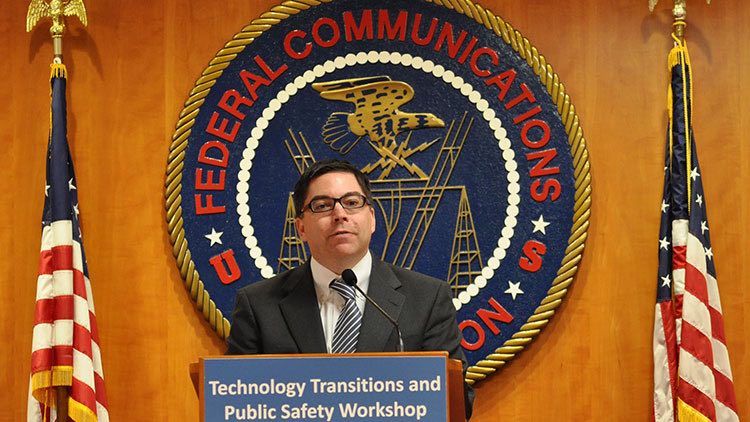FCC's O'Rielly: Title II Fight Is Capitalism vs. Socialism

The smarter way to stay on top of broadcasting and cable industry. Sign up below
You are now subscribed
Your newsletter sign-up was successful
FCC commissioner Michael O'Rielly minced no words Friday in a speech to an American Legislative Exchange Council (ALEC) summit in Charlotte, N.C., about the forces defending the FCC's Open Internet order, according to a copy of his remarks.
ALEC is a state legislator membership organization that supports limited government and free markets.
O'Rielly voted against the 2015 Open Internet order and its Title II reclassification of ISPs and has associated himself strongly with FCC chairman Ajit Pai's plan to roll back reclassification and rethink the rules.
At the summit, O'Rielly said that "all of the propaganda in the world cannot paper over the fact that these new burdens [the order's general conduct standard and rules against blocking, throttling and paid prioritization] were not in response to actual marketplace events but hypothetical concerns dreamt up by radical activists."
O'Rielly said the FCC was under pressure "to buckle and acquiesce to the whims of the misinformed screaming for Net Neutrality."
He said that progressive agenda was being pushed throughout the government, that it was being used to get the government to redistribute wealth, and that network neutrality was a subset of a larger movement to "vanquish capitalism and economic liberty."
He also talked about what he said was municipal broadband's "any means necessary" approach to "more and faster broadband."
The smarter way to stay on top of broadcasting and cable industry. Sign up below
O'Rielly likened it to Venezuela's offer of low-cost oil, at the price of appeasing a radical government, and asked how that would have worked now that Venezuela appears near collapse in part because it is socialist. He said he supports a reformed universal service subsidy approach to deployment, but "what I am unwilling to do and will never support," he said, "is allowing government-sponsored networks to use their unfair advantages to offer broadband services."
Contributing editor John Eggerton has been an editor and/or writer on media regulation, legislation and policy for over four decades, including covering the FCC, FTC, Congress, the major media trade associations, and the federal courts. In addition to Multichannel News and Broadcasting + Cable, his work has appeared in Radio World, TV Technology, TV Fax, This Week in Consumer Electronics, Variety and the Encyclopedia Britannica.

